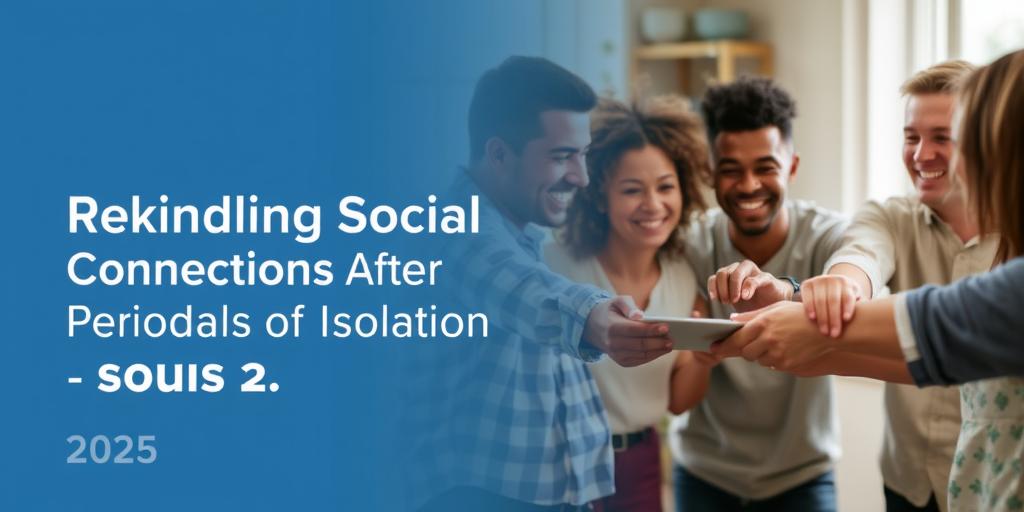Rekindling Social Connections After Periods of Isolation (2025)
In 2025, as we navigate an increasingly interconnected yet sometimes isolating world, it’s essential to understand how to rebuild and maintain social connections, especially after periods of isolation. Whether due to global events, personal circumstances, or lifestyle choices, feeling disconnected can have significant impacts on mental and emotional well-being. This article provides practical strategies for rekindling social bonds and fostering a sense of community.
Understanding the Impact of Isolation
Periods of isolation can lead to feelings of loneliness, depression, and anxiety. Social connections are vital for emotional support, cognitive function, and even physical health. Recognizing the effects of isolation is the first step in addressing it.
- Mental Health: Prolonged isolation can exacerbate mental health conditions.
- Emotional Well-being: Lack of social interaction can lead to feelings of emptiness and sadness.
- Physical Health: Studies show a link between social isolation and weakened immune systems.
Strategies for Re-Establishing Social Connections
-
Identify Your Social Needs: Understand what kind of social interactions you crave. Do you miss deep conversations, group activities, or casual interactions?
-
Start Small: Begin by reaching out to one or two people you trust. A simple phone call, text message, or coffee date can make a big difference.
-
Join Group Activities: Look for local clubs, sports teams, or volunteer opportunities that align with your interests. Shared activities can provide a natural way to connect with others.
-
Utilize Technology: Social media and online platforms can be useful tools for staying connected, but be mindful of screen time and aim for real-life interactions whenever possible.
-
Be Open and Vulnerable: Share your experiences and feelings with others. Authenticity can foster deeper connections and create a sense of mutual understanding.
-
Practice Active Listening: When engaging with others, focus on truly hearing and understanding their perspectives. This builds trust and strengthens relationships.
-
Attend Community Events: Check local listings for festivals, workshops, and other events that bring people together.
-
Reconnect with Old Friends: Reach out to friends or acquaintances you’ve lost touch with. You may be surprised at how easily you can rekindle those relationships.
Overcoming Barriers to Social Connection
- Fear of Rejection: It’s normal to feel apprehensive about reaching out, but don’t let fear hold you back. Remember that most people are open to making new connections.
- Lack of Time: Prioritize social activities by scheduling them into your routine. Even small amounts of dedicated time can make a difference.
- Social Anxiety: If you struggle with social anxiety, consider seeking support from a therapist or counselor. They can provide tools and strategies for managing anxiety in social situations.
Maintaining Social Connections in the Long Term
-
Regular Check-Ins: Make it a habit to regularly connect with friends and family, even when you’re busy.
-
Plan Social Outings: Organize gatherings and activities that you and your friends enjoy.
-
Be Proactive: Don’t wait for others to reach out to you; take the initiative to initiate contact.
-
Nurture Your Relationships: Invest time and energy into your social connections. Show appreciation and support for the people in your life.
The Role of Community in Rekindling Connections
Community involvement is crucial for combating isolation and fostering a sense of belonging. Engaging in local initiatives, volunteering, or participating in community events can create meaningful connections and provide opportunities for social interaction.
Conclusion
Rekindling social connections after periods of isolation is essential for overall well-being. By understanding the impact of isolation, implementing practical strategies, and actively nurturing relationships, individuals can rebuild their social lives and foster a sense of community. In 2025, prioritizing social connections is more important than ever for creating a happier, healthier, and more connected society.
